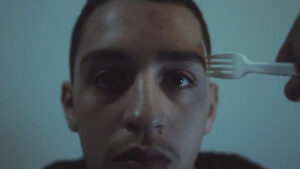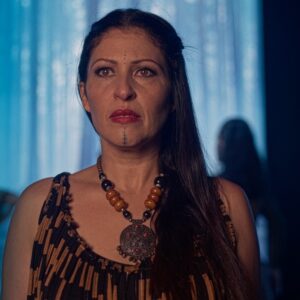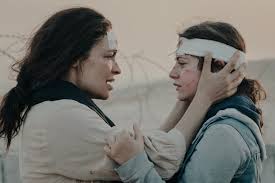Premiering The Village Next to Paradise in the Un Certain Regard section, Mo Harawe made history by being the first Somalian filmmaker to compete at the Cannes Film Festival. The film follows a family who despite the many challenges and problems they face, decide to stick together. The Film Verdict spoke to Haware about the uniqueness of making a film in Somalia, and how solidarity and the social flexibility among the crew made the filmmaking process easier.
The Film Verdict: Your first two shorts Life on the Horn (2020) and Will My Parents Come to See Me (2022) addressed local issues in Somalia. What motivated you to stay on the same subject in your first long feature?
Mo Harawe: I wanted to write something that is my explanation of what is going on in this complex country. And I was not thinking about what you only see, but also to capture the feeling. You have to know what people are feeling so you can actually know them.
TFV: Your film not only made history as the first Somali film to be screened in the Cannes Film Festival, but your filmography has in many ways created a visual narrative of Somalia.
MH: My goal was not to create just images. I was thinking about the characters and the stories. But I was conscious of really showing the other side of the coin, the side that you don’t know of the country. I think it is the responsibility of the person who is taking that frame to choose which side to tell and not to tell, and if you want, to tell both. For me, I am trying to tell both sides. We have problems here, but it is not only us who are creating these problems. There are external factors causing problems. That is where the name of the film comes in. This country has the potential to become a paradise with less than 15 million people living in this big area, with the Gulf of Aden to the north and the Indian Ocean to the east. If we just have a solution for these problems, then we can be a paradise.
TFV: In many cases, the international market is setting its eyes on certain narratives coming from Africa. How did you manage to pitch and fund your idea?
MH: From the beginning, after I wrote the script, and had a plan to shoot it. I knew that if I’m shooting this script it has to be in Somalia and I need to shoot for at least three months. These were my rules, because I was pleased with the script. Luckily, my producers read it and said yes, so I did not have to convince anyone. Luckily it worked out.
TFV: Your actors seemed very comfortable and confident on screen. Were they professional or amateur actors?
MH: They are professionals in the sense that they did an amazing job, but they did not go to an acting school. They have been in front of the camera for the first time. We were lucky to find them and we found them in a very unconventional way, through friends and connections and situations.
TFV: In the background of your character’s different struggles, there is the mention of piracy, terrorist attacks, illegal fishing, and pollution, which are issues Somalia is still facing. What was your experience filming on the Somalian coast?
MH: Shooting a film is always challenging. And in Somalia, there were practical difficulties. The team was small, and you needed time for everything. Other than that, I think it was only possible to make this film in Somalia. It would never have been possible elsewhere. The freedom and flexibility we had as a crew was amazing. Sometimes we would go to someone’s place and say “we need your place”, and they would give it to us to shoot in.
TFV: The film was highly praised for its cinematography, showing very visually striking images from daily life. How was that process?
MH: I was glad to have worked with DOP Mostafa Al-Kashif. He is a very talented guy — not only that, but a very sensitive and very human guy. I wanted to work together on the last film, Will My Parents Come to See Me (2022), but unfortunately he was not allowed to enter in the airport. So we wanted to make this happen in the new film and Mostafa came in with his Egyptian crew, and did an excellent job. I don’t think it would have been possible without his effort.

.png)






I like this weblog it’s a master piece! Glad I noticed this ohttps://69v.topn google.Blog monetyze